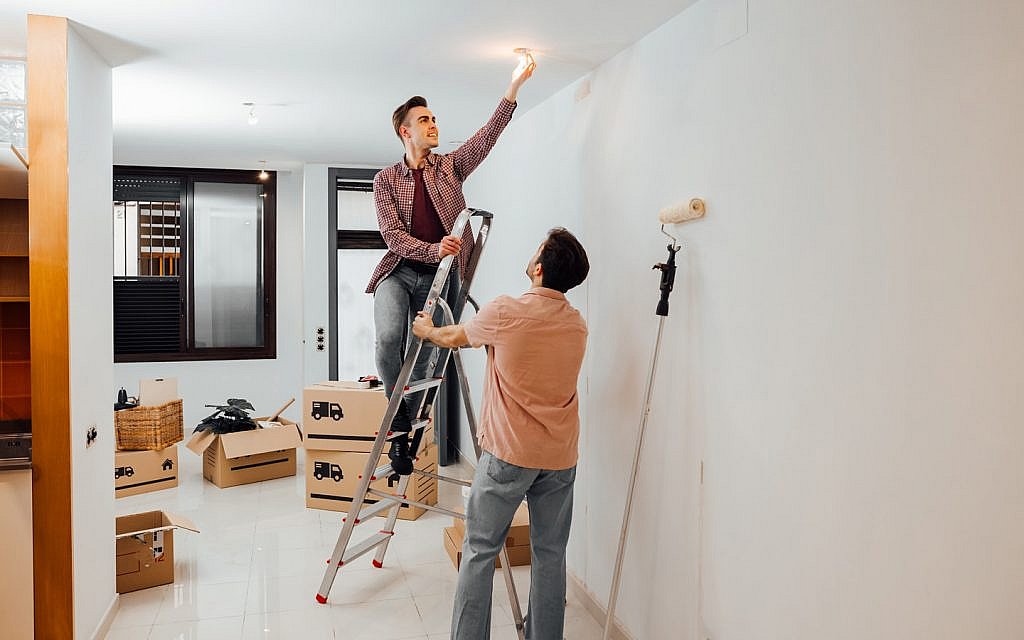Why Flat Sharing Is Popular in Dubai
Dubai is a bustling, vibrant city full of career opportunities and lifestyle perks. But with that appeal often comes a high cost of living. Rent can be one of the biggest expenses, especially for young professionals, new arrivals, or those trying to save more. That’s why Sharing Rented Flat has become a common solution.
Flat sharing not only helps cut down on rent and utility bills but also makes it easier to live in better neighborhoods that may otherwise be out of budget. It’s also a way to build friendships, share responsibilities, and avoid the feeling of isolation that sometimes comes with big city life.

But while the idea is attractive, it’s important to understand what’s legal and what’s not in Dubai’s housing market. Because here, even a small misstep—like not having approvals or adding an extra person to your home—can lead to fines or eviction.
What Dubai Law Says About Sharing Rented Flats
Contrary to popular belief, flat sharing is not completely illegal in Dubai. In fact, authorities are open to the idea—as long as it’s done with transparency and within legal boundaries. The rules are mainly in place to ensure safety, accountability, and peaceful living environments for everyone.
If you’re living in a residential area that allows flat sharing (like apartments and villas in non-restricted zones), you can legally share your flat with others. But this must be declared in your tenancy agreement, and your landlord must be aware of it.
The Dubai Land Department (DLD) and the Real Estate Regulatory Agency (RERA) have regulations in place to monitor overcrowding and illegal subletting. That’s why it’s crucial to make sure the number of people living in a flat matches what is allowed based on the size of the property.

Step-by-Step Guide to Sharing a Flat Legally in Dubai
Here’s a simplified roadmap to sharing a flat the right way:
1. Speak to Your Landlord First
Before bringing anyone into your rented space, have a clear conversation with your landlord. Get their written permission, especially if you plan to have someone stay long-term. Some landlords are open to flat sharing, while others may prefer to avoid the hassle.
If your tenancy contract strictly says “no sharing,” it’s better not to go against it. Violating that clause could not only lead to eviction but also affect your rental history and future agreements.
2. Register All Occupants Through Ejari
Every rental contract in Dubai must be registered under Ejari—the official tenancy registration system. For shared flats, you’ll also need to register all occupants on the system to remain compliant. This adds a layer of legal clarity and protects both tenant and landlord.
This registration is also useful when your flatmates need to apply for residence visas, set up utility accounts, or use the address for official documentation.
3. Stick to the Allowed Occupancy Limits
Dubai Municipality has set guidelines for how many people can live in a flat. Generally, the rule is that each person should have at least 200 square feet of space.
Overcrowding is taken seriously and can lead to fines. So don’t just think of it in terms of “how many beds can fit”—focus on comfort, space, and what’s legally permitted.

4. Don’t Sublet Without Permission
Subletting is different from sharing. Subletting means you’re renting out the space to someone else for profit, acting as a middleman between the landlord and the new tenant. That’s illegal unless specifically allowed by your contract and with landlord approval.
If you’re going to share costs (like rent and utilities) equally with a roommate and have full transparency with your landlord, that’s generally seen as legal sharing—not subletting.
5. Draft an Internal Agreement with Flatmates
Even if it’s not a legal requirement, having a written agreement with your flatmates is a smart move. It can include how bills will be split, how long the stay is, what the house rules are, and what to do in case someone wants to leave early.
It helps avoid future misunderstandings and keeps things professional—even among friends.
6. Maintain Privacy and Noise Boundaries
Dubai’s residential communities thrive on peace and mutual respect. If your shared flat turns into a noisy hotspot or disrupts neighbors, complaints can lead to official action.
Make sure everyone you live with understands the basic expectations of community living. Respect for others’ space, cleanliness, and silence during night hours should be non-negotiable.
What Happens If You Break the Rules
Ignoring the rules on flat sharing in Dubai can lead to serious trouble. If caught with unregistered occupants or in violation of tenancy terms, you could face:
- Eviction from the property
- Heavy fines imposed by the Dubai Municipality
- Legal action from your landlord
- Problems during visa renewal or new tenancy agreements
And in worst-case scenarios, if your name gets blacklisted, it can affect your ability to rent in Dubai in the future.
That’s why even if you’re just letting a friend crash for a few months, it’s better to do it by the book.

The Benefits of Doing It Right
When you legally share a flat, life becomes smoother. You’ll have peace of mind knowing you’re not breaking any rules. You’ll also enjoy better relationships with your landlord, neighbors, and authorities.
It can open doors to long-term financial planning. For many expats in Dubai, legal flat sharing is the first step to stability—allowing them to save up, build credit, and eventually get their own place.
There’s also a personal benefit: you get to build a small community in a new city. Sharing meals, morning coffees, and even daily routines can make Dubai feel less like a foreign land and more like home.
Tips for Choosing the Right Roommate in Dubai
Legalities aside, sharing a flat is also about comfort and compatibility. Here are some soft rules to follow when selecting your future flatmate:
- Look for someone with a stable job or income
- Make sure your daily routines align (early riser vs night owl)
- Choose people who share your cleanliness standards
- Have an open conversation about expectations
- Agree on how bills will be managed every month
Don’t rush the decision just to save on rent. A wrong choice can make your home life uncomfortable, while the right one can bring friendship, trust, and mutual growth.
Flat Sharing and the Spirit of Dubai
Dubai is a city built by people from around the world. It thrives on diversity, collaboration, and shared dreams. Flat sharing, when done right, is a reflection of that very spirit.
Whether you’re a fresh graduate, a young professional, or someone starting over in a new industry, sharing a flat can be the stepping stone to something bigger. But the key lies in doing it transparently, legally, and with respect for everyone involved.
It’s not just about splitting the rent—it’s about building a safe, stable, and welcoming home in one of the world’s most exciting cities.
So if you’re considering sharing a rented flat in Dubai, do it smart, do it right, and stay protected.
Do follow UAE Stories on Instagram
7 Best Things To Do In Dubai With Your Bestie This Friendship Day













